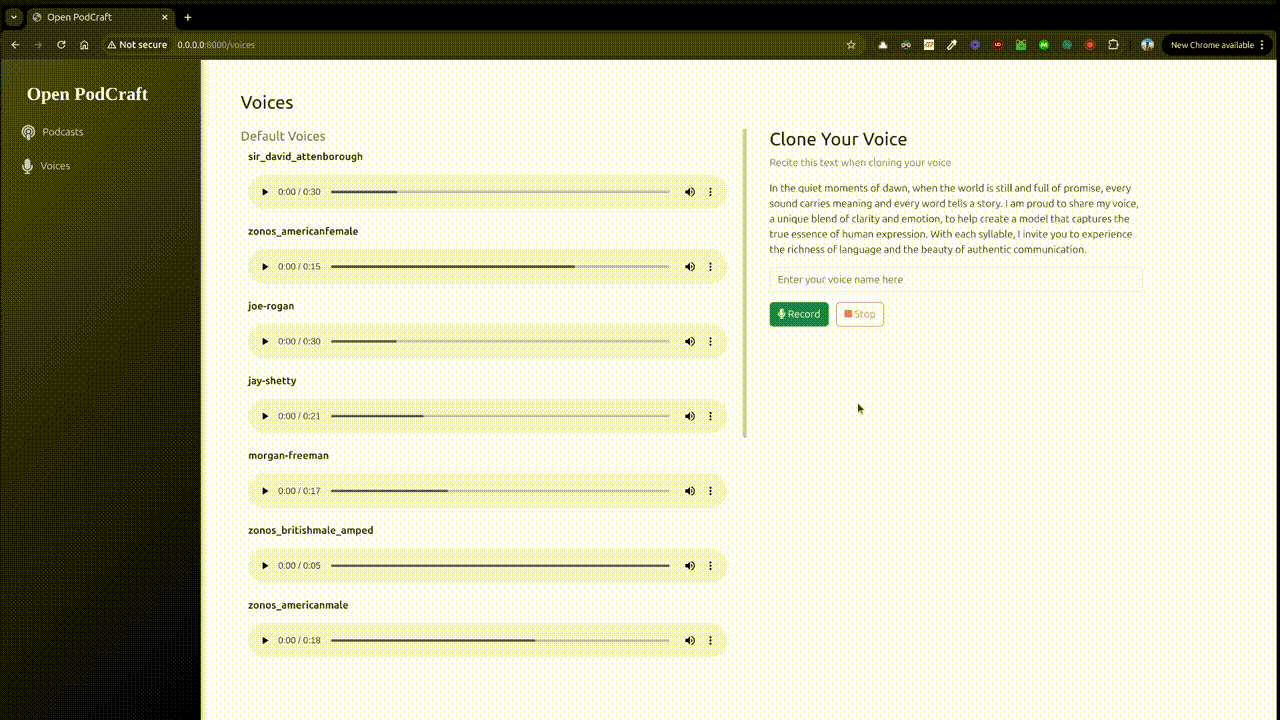OpenPodcraft is an open-source project that enables users to create podcasts from their textual content. With OpenPodcraft, you can either clone your own voice or use voices from different individuals to generate professional-sounding podcasts.
Listen to a samples generated by Open Podcraft
- Sample 1
sample1.mp4
- 🎙️ Clone your own voice – Create a digital version of your voice for podcasts.
- 🗣️ Use voices from other speakers – Choose from a variety of AI-generated voices.
- 📜 Generate transcript using different LLM APIs – Leverage multiple AI models for accurate transcription.
- 💻 Cross-compatible with different OS – Works seamlessly on Windows, Mac, and Linux.
-
Install Docker
-
Setup OpenRouter API key
- Setup API key manually
# Navigate to the project directory cd open-podcraft # create .env file and add the keys as follows OPENROUTER_API_KEY=<here-goes-your-api-key>
- Use Python to setup the API key
# Navigate to the project directory cd open-podcraft # run the py script and follow the instructions python set_api_key.py
-
Install and run the app
# Clone the repository git clone https://github.com/vaishanth-rmrj/open-podcraft.git # Navigate to the project directory cd open-podcraft # Start the Docker container docker-compose up -d # Run the application inside the container docker exec -it cont-open-podcraft python app.py
- Add your custom audio speech files (.wav or .mp3) to
/static/voice/custom - If you want to change the LLM prompting for the script you can edit:
assets/prompts.yaml. (Will make it available in the GUI soon) - To change the TTS speech generation params you can edit:
configs/default.py. (Will make it available in the GUI soon)
Open Podcraft is built on top of many wonderful open-source libraries!
Contributions are welcome! Feel free to fork the repository and create pull requests.
If you have any problem running the app, create a new issue and I will try to fix it asap.
This project is licensed under the Apache 2.0 License - see the LICENSE file for details.

